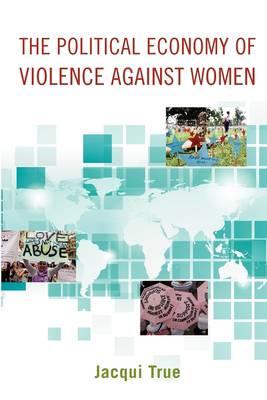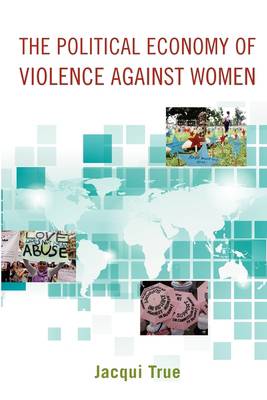
Bedankt voor het vertrouwen het afgelopen jaar! Om jou te bedanken bieden we GRATIS verzending (in België) aan op alles gedurende de hele maand januari.
- Afhalen na 1 uur in een winkel met voorraad
- In januari gratis thuislevering in België
- Ruim aanbod met 7 miljoen producten
Bedankt voor het vertrouwen het afgelopen jaar! Om jou te bedanken bieden we GRATIS verzending (in België) aan op alles gedurende de hele maand januari.
- Afhalen na 1 uur in een winkel met voorraad
- In januari gratis thuislevering in België
- Ruim aanbod met 7 miljoen producten
Zoeken
Omschrijving
Violence against women is a major problem in all countries, affecting women in every socio-economic group and at every life stage. Nowhere in the world do women share equal social and economic rights with men or the same access as men to productive resources. Economic globalization and development are creating new challenges for women's rights as well as some new opportunities for advancing women's economic independence and gender equality. Yet, when women have access to productive resources and they enjoy social and economic rights they are less vulnerable to violence across all societies. The Political Economy of Violence against Women develops a feminist political economy approach to identify the linkages between different forms of violence against women and macro structural processes in strategic local and global sites - from the household to the transnational level. In doing so, it seeks to account for the globally increasing scale and brutality of violence against women. These sites include economic restructuring and men's reaction to the loss of secure employment, the abusive exploitation associated with the transnational migration of women workers, the growth of a sex trade around the creation of free trade zones, the spike in violence against women in financial liberalization and crises, the scourge of sexual violence in armed conflict and post-crisis peacebuilding or reconstruction efforts and the deleterious gendered impacts of natural disasters. Examples are drawn from South Africa, Kenya, the Democratic Republic of Congo, China, Ciudad Juarez in Mexico, the Pacific Islands, Argentina, Eastern Europe, Central Asia, Haiti, Sri Lanka, Indonesia, New Zealand, Ireland, the United Kingdom, the United States and Iceland.
Specificaties
Betrokkenen
- Auteur(s):
- Uitgeverij:
Inhoud
- Aantal bladzijden:
- 256
- Taal:
- Engels
- Reeks:
Eigenschappen
- Productcode (EAN):
- 9780199755912
- Verschijningsdatum:
- 28/08/2012
- Uitvoering:
- Paperback
- Formaat:
- Trade paperback (VS)
- Afmetingen:
- 155 mm x 231 mm
- Gewicht:
- 340 g

Alleen bij Standaard Boekhandel
+ 164 punten op je klantenkaart van Standaard Boekhandel
Beoordelingen
We publiceren alleen reviews die voldoen aan de voorwaarden voor reviews. Bekijk onze voorwaarden voor reviews.









